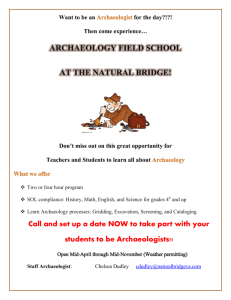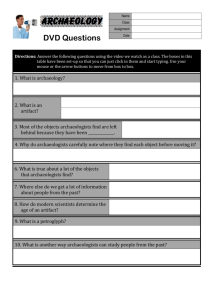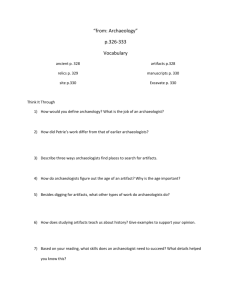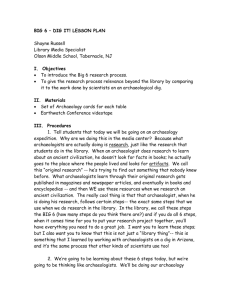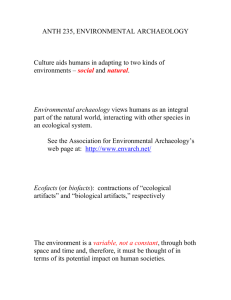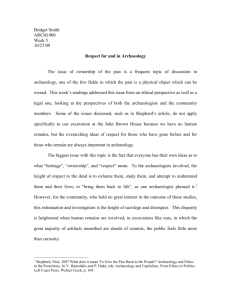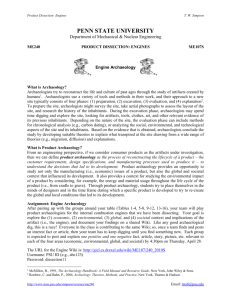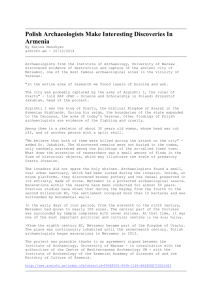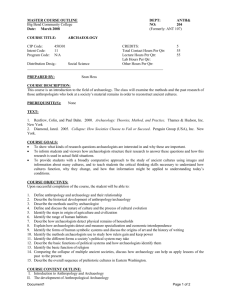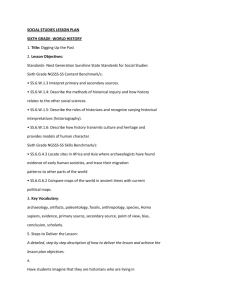HISTORIANS and ARCHAEOLOGISTS
advertisement
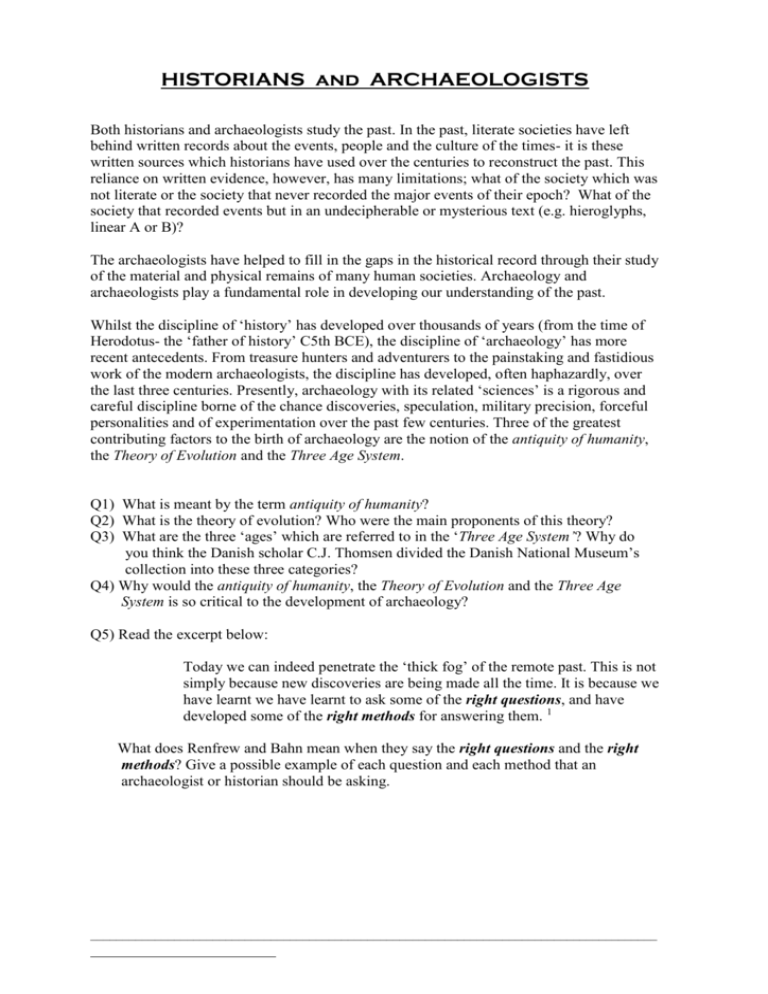
HISTORIANS and ARCHAEOLOGISTS Both historians and archaeologists study the past. In the past, literate societies have left behind written records about the events, people and the culture of the times- it is these written sources which historians have used over the centuries to reconstruct the past. This reliance on written evidence, however, has many limitations; what of the society which was not literate or the society that never recorded the major events of their epoch? What of the society that recorded events but in an undecipherable or mysterious text (e.g. hieroglyphs, linear A or B)? The archaeologists have helped to fill in the gaps in the historical record through their study of the material and physical remains of many human societies. Archaeology and archaeologists play a fundamental role in developing our understanding of the past. Whilst the discipline of ‘history’ has developed over thousands of years (from the time of Herodotus- the ‘father of history’ C5th BCE), the discipline of ‘archaeology’ has more recent antecedents. From treasure hunters and adventurers to the painstaking and fastidious work of the modern archaeologists, the discipline has developed, often haphazardly, over the last three centuries. Presently, archaeology with its related ‘sciences’ is a rigorous and careful discipline borne of the chance discoveries, speculation, military precision, forceful personalities and of experimentation over the past few centuries. Three of the greatest contributing factors to the birth of archaeology are the notion of the antiquity of humanity, the Theory of Evolution and the Three Age System. Q1) What is meant by the term antiquity of humanity? Q2) What is the theory of evolution? Who were the main proponents of this theory? Q3) What are the three ‘ages’ which are referred to in the ‘Three Age System’? Why do you think the Danish scholar C.J. Thomsen divided the Danish National Museum’s collection into these three categories? Q4) Why would the antiquity of humanity, the Theory of Evolution and the Three Age System is so critical to the development of archaeology? Q5) Read the excerpt below: Today we can indeed penetrate the ‘thick fog’ of the remote past. This is not simply because new discoveries are being made all the time. It is because we have learnt we have learnt to ask some of the right questions, and have developed some of the right methods for answering them. 1 What does Renfrew and Bahn mean when they say the right questions and the right methods? Give a possible example of each question and each method that an archaeologist or historian should be asking. ________________________________________________________________________________________ 1. Renfrew C. and Bahn P. 2000 (3rd Ed.) Archaeology: Theories, Method and Practice p19

